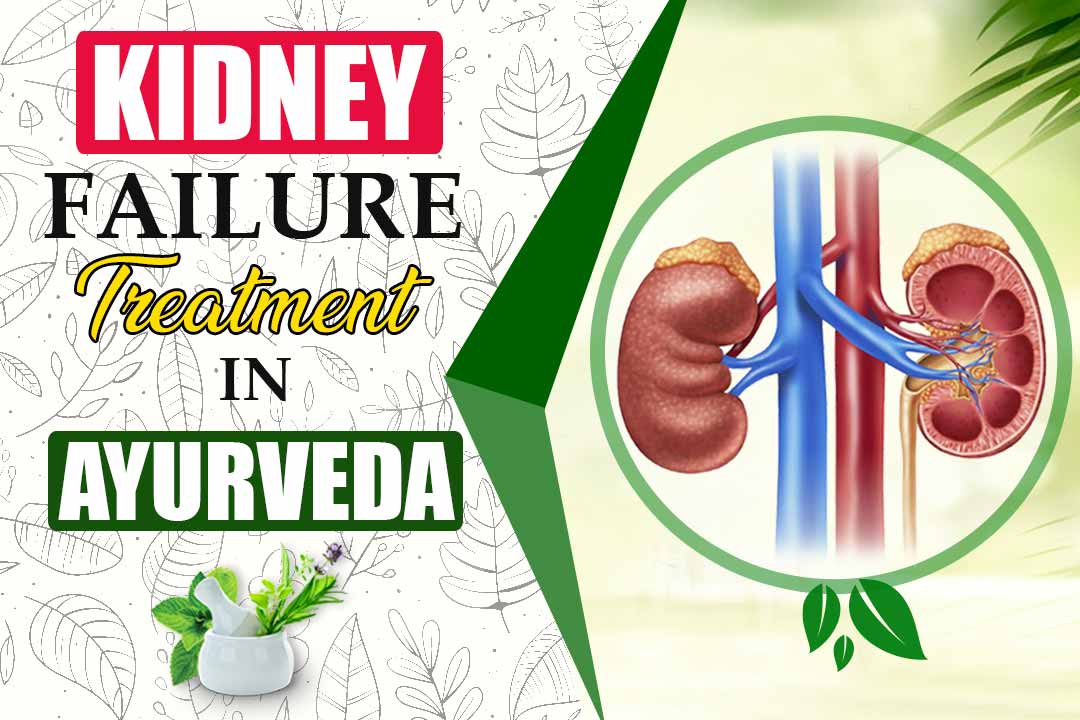
Kidney failure is an intimidating term, and for a lot of us, the approach to wellness can seem even more looming. Conventional treatments like dialysis or transplants can be lifesaving, but also bring physical, emotional, and financial hardships. This is the role that Ayurveda, the ancient Indian system of medicine, comes in as an alternative. By addressing all levels of being, the body, mind, and spirit, Ayurveda provides a complete range of healing, which seeks to support kidney health naturally.
So, in today’s blog, we’ll take a look at the best Ayurvedic remedies for kidney failure, and just break it all down in a manner that feels approachable, and hopefully empowers you while you’re in the process of getting treatment for your kidneys. Let’s dive in.
In Ayurveda, kidney failure is associated with an imbalance in the body’s doshas—Vata, Pitta, and Kapha. The kidney is directly related to the Mutravaha Srotas (urinary system) in its diagnosis and treatment. When channels running through our kidneys get blocked due to poor diet, stress, or improper lifestyle, toxins (ama) start accumulating, leading to poorly functioning kidneys. Ayurveda doesn’t just treat the symptoms of imbalance; it eliminates the root cause through its detoxification program, wellness regimen, and body restoration.
The objective of Ayurvedic treatment in kidney failure is to:
Though not a replacement for medical care, Ayurveda can augment a conventional approach and enhance the quality of life, and even in some circumstances retard the process of disease.
Kidney failure treatment in Ayurveda relies heavily on herbs to cleanse, repair, and rejuvenate the kidneys. Some of the most potent herbs for kidney failure include:
These herbs are often combined in formulations like Chandraprabha Vati or Punarnavadi Kashayam, prescribed based on your unique constitution. Dosage and combinations should always be guided by a practitioner, as improper use can strain the kidneys further.
In Ayurveda, diet is a cornerstone of healing. For kidney failure, the focus is on foods that are easy to digest, reduce toxin buildup, and support kidney function. Here’s what to prioritize:
A personalized diet plan, based on your dosha and condition, is key. For example, a Pitta-dominant person might need cooling foods like leafy greens, while a Kapha type may benefit from lighter, warming meals.
Panchakarma, Ayurveda’s signature detoxification therapy, is highly effective for kidney failure when done under expert supervision. This multi-step process cleanses the body of ama (toxins) and restores balance. Key therapies include:
Panchakarma is tailored to your health status, so it’s critical to undergo it at a reputable Ayurvedic center. For advanced kidney failure, gentler therapies may be recommended to avoid overtaxing the body.
Ayurveda emphasizes lifestyle as much as herbs or diet. Simple changes can make a big difference:
Proper hydration is critical, but kidney failure patients often need to monitor their fluid intake. Ayurveda recommends sipping warm water or herbal teas (like coriander or fennel tea) throughout the day to support digestion and detoxification without overloading the kidneys. Avoid cold drinks, which can disrupt digestion and circulation.
Ayurvedic treatments take time and consistency. You might notice reduced swelling, improved energy, or better digestion within weeks, but significant kidney function improvement can take months. Studies, like those published in the Journal of Ayurveda and Integrative Medicine, suggest that herbs like Punarnava and Gokshura can reduce creatinine levels and improve glomerular filtration rate (GFR) in some patients. However, results vary based on the stage of kidney failure, adherence to treatment, and individual factors.
Ayurveda is powerful, but it’s not a one-size-fits-all solution. Kidney failure is a serious condition, and self-medicating with herbs or drastic diet changes can be risky. Always work with a qualified Ayurvedic doctor who collaborates with your nephrologist. Regular blood tests (creatinine, BUN, GFR) are essential to monitor progress and ensure treatments are safe.
Living with kidney failure is a journey, and Ayurveda can be a gentle, supportive companion. By combining herbal remedies, a kidney-friendly diet, detoxification therapies, and mindful lifestyle practices, you can nurture your body’s natural healing potential. The beauty of Ayurveda lies in its holistic approach; it’s not just about fixing the kidneys but about restoring harmony to your entire being.
If you’re considering Ayurveda, start by finding a trusted practitioner like Karma ayurveda for kidney failure treatment for the best results. Share your goals, ask questions, and take it one step at a time. Healing is possible, and with the right tools, you can reclaim a sense of vitality and hope.

Certificate no- AH-2023-0186
JAN 05,2023-JAN 04,2026
"Ayurveda is not just a system of medicine; it's a way of life. Connect with us to embrace a lifestyle that nurtures your body, mind, and soul."
Book Consultation Now